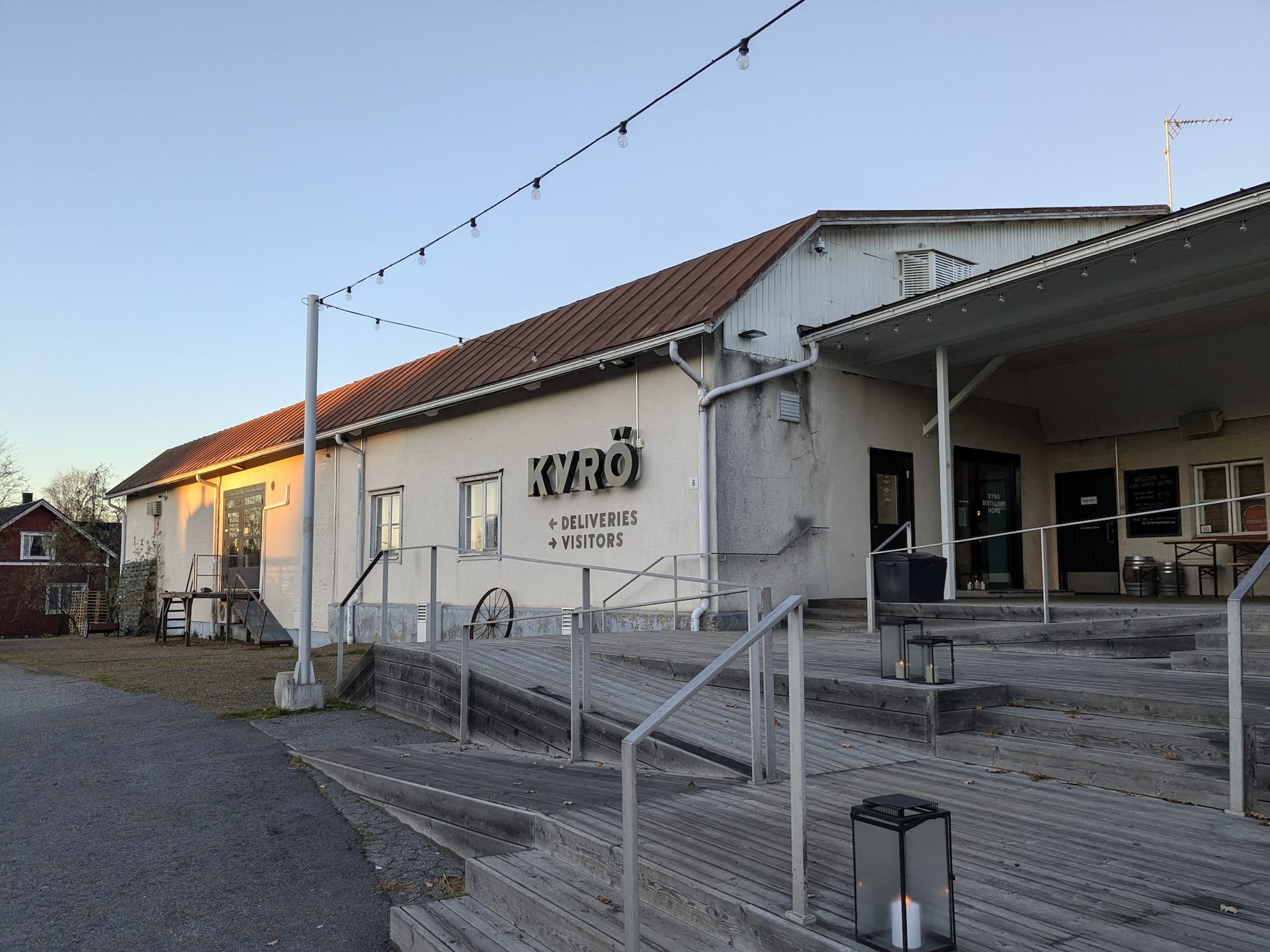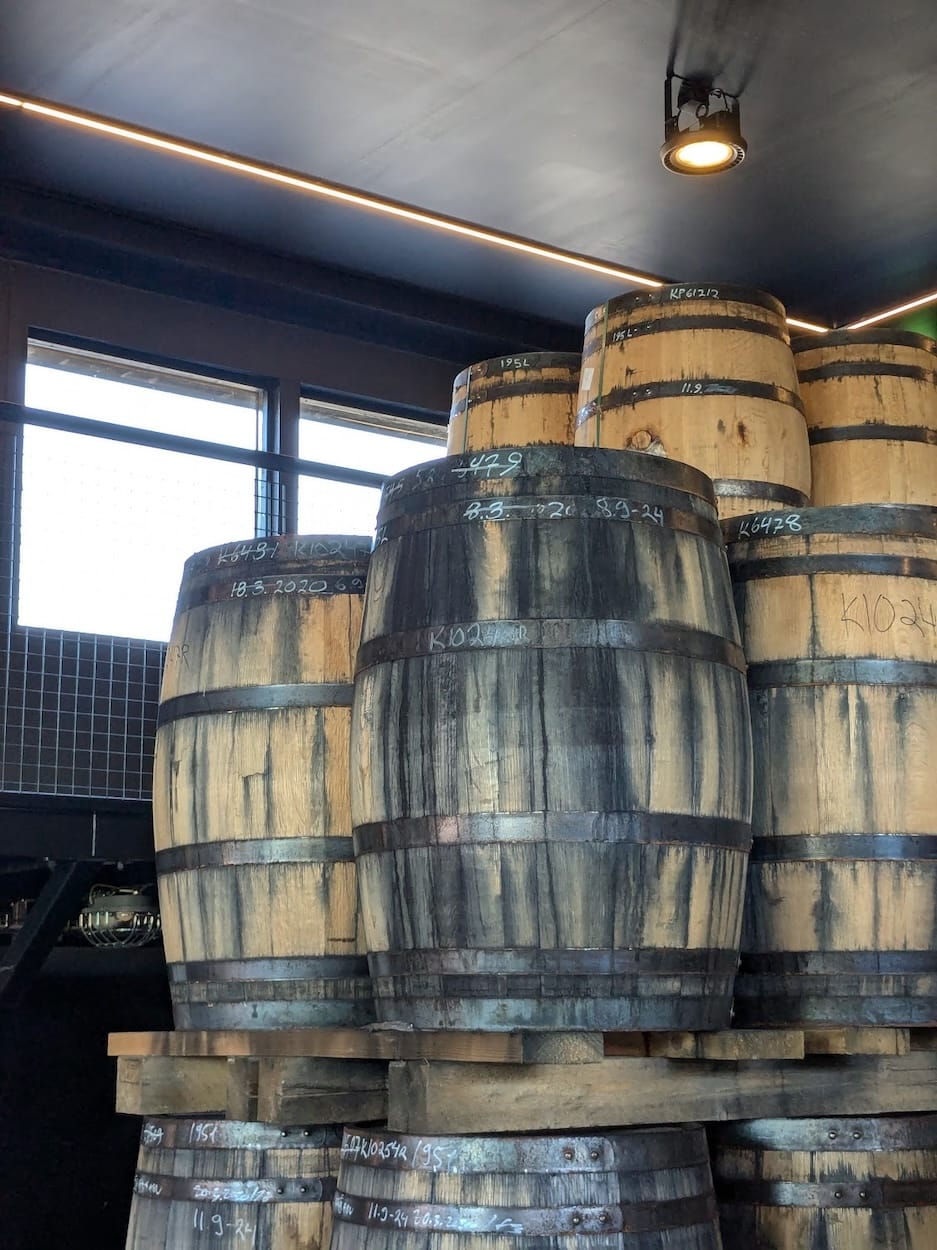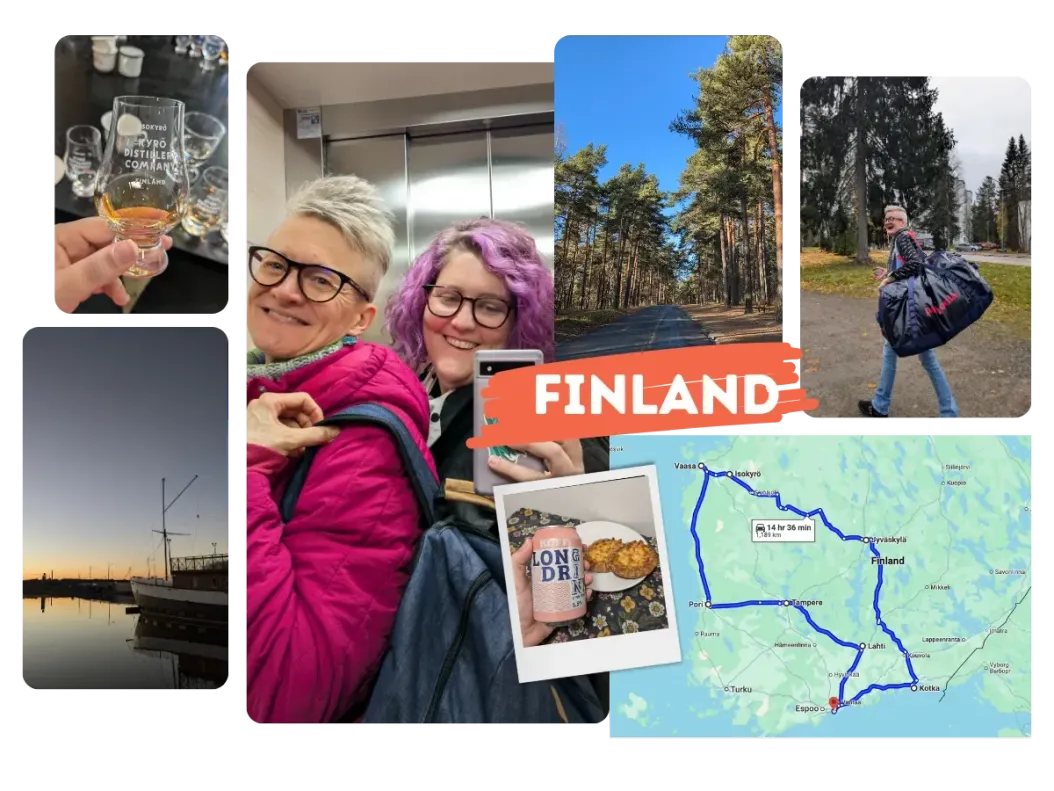I had a different newsletter planned for today but, alas, I got a bee in my bonnet and here we are. 😆
A few years ago, I tried a Finnish whiskey brand called Kyro and it quickly became a favorite. I've been bringing it back to Mexico for years now and I even took a road trip to the distillery last year.
Kyro has a whole lineup of different whiskeys but their rye is my favorite... and now they can’t call it what it is: rye whiskey.
The TL;DR
Twenty years ago, the EU signed a trade agreement with Canada that says only whiskey producers from Canada can use the term "rye whiskey."
This is bullshit for a lot of reasons. Mostly because rye whiskey didn't originate in Canada (that was the US), they are not the biggest producer (that's also the US), and because they don't require their "rye whiskey" to even include rye!
But, I digress...
This fine print was ignored for the last two decades but it's being enforced now, which I learned about yesterday from Kyro's Instagram.
Not because Canada complained, or because there's rampant counterfeiting of rye whiskey (lol)... but likely because some bureaucrat finally read the fine print.
The result is that European whiskey distillers have to change their labels and stop calling their rye whiskey... rye whiskey.

Kyro’s Claim to Rye
I single out Kyro because I love them but also because rye is their whole thing.
Finland consumes a shit ton of rye per capita and Kyro’s origin story is that its founders were drinking whiskey in a sauna (also very Finnish) and found themselves wondering why a country known for its rye wasn’t making rye whiskey.
These days, Kryo makes all kinds of whiskey and even an award-winning gin—all from locally-grown rye.
Their slogan is literally, “In rye we trust.”
Geographical Protections
The heart of this is Canada's claim to the term "rye whiskey."
A lot of food and beverages have legal protections to prevent them from being made outside their place of origin—whether that's an official "denomination of origin" or just a trade agreement.
For example, you can’t make champagne outside of Champagne and you can’t make mezcal outside of Mexico.
The purpose is two-fold:
- It protects you, the consumer, from buying a bottle of “mezcal” that isn’t actually mezcal.
- And it protects Mexico's investment in growing the mezcal industry, the reputation of which could be ruined by poor imitations.
Now, notice that Champagne doesn’t own “sparkling wine,” and Mexico doesn’t own “agave spirit.” They own the specific names champagne and mezcal, not the broader categories. And this is where the rye whiskey thing breaks down for me.
Trade agreements should protect Canadian producers from counterfeit "Canadian rye whiskey," but it instead gives them the whole category—even though rye whiskey originated in the US and is now made all over the world.
I don't think it was some sneaky move from Canada so much as poorly written paperwork, but here we are.
🥃 Rye Whiskey: Any whiskey primarily made from rye. You can make it anywhere, but it's usually associated with the US and Canada.
🥃 American Rye Whiskey: Whiskey made in the US that contains at least 51% rye. There are other requirements for production and bottling but those are the two main things!
🥃 Canadian Rye Whiskey: Whiskey made in Canada. There is no requirement to actually include rye and many producers only use 10-30%.

Why should we care?
Overly broad protections make it harder for consumers to navigate confusing categories and for craft producers to sell (and compete) internationally.
If you know you like "rye whiskey," that's what you're looking for on a bottle.
And, if you're making whiskey in Europe, you shouldn't have to call your product one thing in the US, another thing in the EU, and god knows what else.
It’s bad for the consumer, and it’s also bad for the craft distiller who is running a capital-intensive business with thin margins. (Whiskey distillers, for example, have to spend +3 years aging their first product before they can sell a single bottle.)
So, if you’re wondering, “Caro, why does this small thing even matter??”
It matters because small things like this add up to "death by a thousand paper cuts."
And personally, I don't want to make it harder for small brands to make cool stuff... like a whiskey made from Finnish rye or aged in a sauna.
